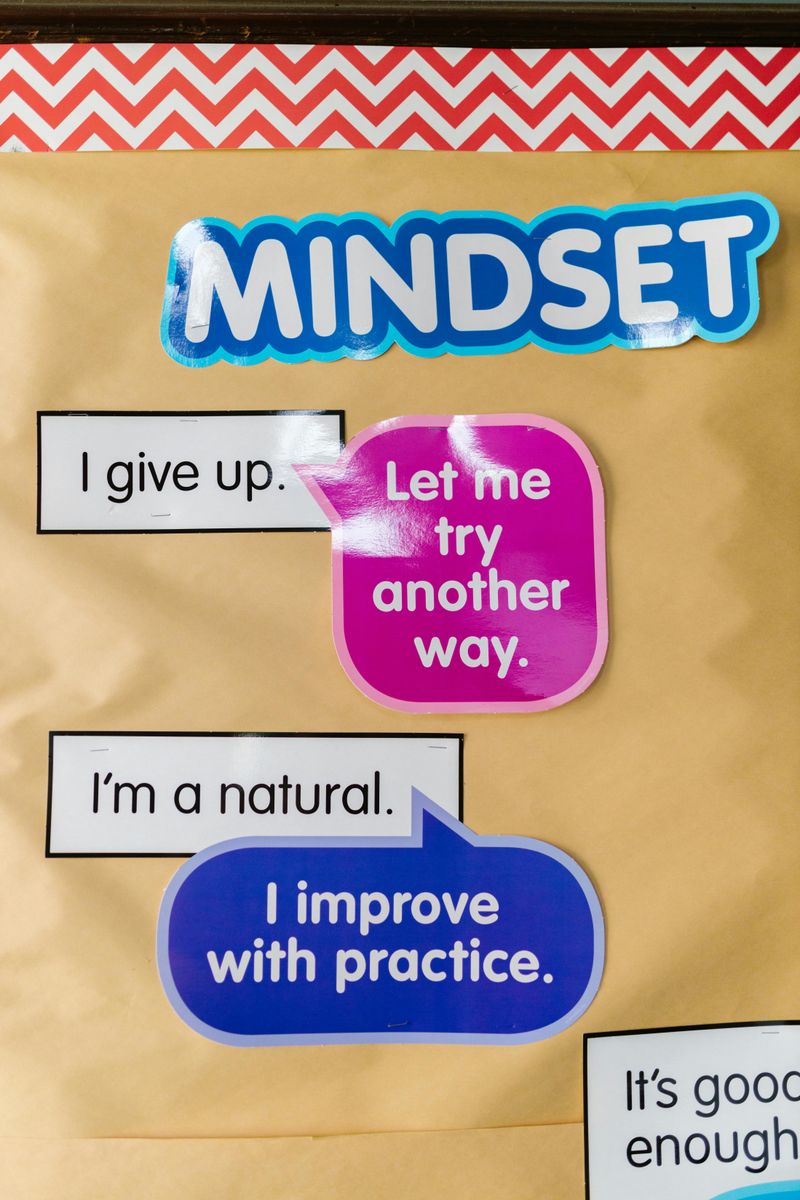Have you ever felt stuck in a rut, going through the motions without really living? I’ve been there too. Our minds are powerful tools that shape how we experience the world around us. By tweaking how we think, we can transform our daily experiences from mundane to magnificent, opening doors we never knew existed.
1. From Fixed to Growth Mindset

Remember when you believed you couldn’t draw to save your life? I certainly did! That’s a fixed mindset talking, mate. Embracing a growth mindset means seeing challenges as opportunities rather than threats.
Your abilities aren’t set in stone – they’re more like clay, waiting to be moulded through effort and persistence. When you catch yourself saying “I can’t,” try adding “yet” to the end of that sentence.
This tiny word packs a powerful punch, shifting your perspective from limitation to possibility. Suddenly, failure becomes a teacher rather than a judge.
2. Embracing Imperfection

Perfection is a mirage that keeps moving further away the closer you think you’re getting. I spent years chasing it before realising it was exhausting me!
The beauty of life lies in its messy imperfections – the wonky birthday cake that made everyone laugh, the improvised presentation when technology failed. These moments often become our favourite stories.
When we release the need for everything to be just right, we create space for creativity, spontaneity, and genuine connection. Plus, it’s bloody liberating to know that good enough is, well, good enough.
3. Gratitude as a Daily Practice

Fancy a free happiness boost? Gratitude is your ticket. I started keeping a gratitude journal during a particularly rough patch and was gobsmacked by how quickly it shifted my focus.
Our brains are wired to spot problems – it’s an evolutionary survival mechanism. Deliberately noticing what’s going well counterbalances this negativity bias.
Try this: before bed, jot down three specific things you appreciated today. Not just “my family” but “the way my partner brought me tea when I was working late.” This practice trains your mind to hunt for the good stuff hiding in plain sight.
4. Viewing Failure as Feedback

Blimey, I’ve failed spectacularly at times! My first public speaking gig was such a disaster that I hid in the loo afterwards. But reframing failure as valuable feedback changed everything.
Think of life as a video game – you don’t expect to defeat the boss on your first try, do you? Each attempt provides crucial information about what works and what doesn’t.
Edison reportedly found 10,000 ways not to make a lightbulb before succeeding. When something goes pear-shaped, ask yourself: “What can I learn from this?” rather than “Why am I such a hopeless case?”
5. Practising Radical Acceptance

Fighting reality is like swimming against a tsunami – exhausting and ultimately futile. Radical acceptance doesn’t mean you approve of difficult situations; it simply means you stop wasting energy denying they exist.
When my flight was cancelled during a storm, fellow passengers were red-faced with rage while I found a comfy spot to read. The situation was identical, but my experience was vastly different.
Accepting “what is” frees up tremendous mental resources. Start with small annoyances – traffic jams, rain on your holiday – and work your way up to the bigger challenges.
6. Cultivating Curiosity

Children ask about 300 questions a day – then somewhere along the way, many of us stop wondering. What a shame! Curiosity is the secret sauce that makes life perpetually interesting.
Last year, I challenged myself to learn something new about a stranger each day. The fascinating conversations that followed transformed mundane interactions into memorable exchanges.
Approach familiar situations with fresh eyes by asking questions like “What am I not seeing here?” or “What might I be wrong about?” This mindset dissolves judgment, opens doors to connection, and keeps your brain deliciously engaged with the world.
7. Abundance Over Scarcity

“There’s not enough to go around” – what a load of codswallop! Scarcity thinking keeps us clutching tightly to what we have, afraid to share our knowledge, resources, or opportunities.
Shifting to abundance consciousness doesn’t require rose-tinted glasses or ignoring genuine limitations. It simply means recognising that many resources – love, creativity, ideas, kindness – actually multiply when shared.
I noticed this shift when I started freely offering advice to “competitors” in my field. Paradoxically, this generosity led to more connections and opportunities than hoarding ever did. What might open up if you loosened your grip just a bit?
8. Choosing Response Over Reaction

Ever said something in anger you later regretted? Join the club! The space between stimulus and response is tiny but mighty – it’s where our freedom lives.
When my neighbour’s dog woke me at 5 AM (again), my initial reaction was fury. But pausing for three deep breaths gave me time to choose a measured response instead of banging on his door in my pyjamas.
Practise creating this pause in low-stakes situations. Notice physical cues that you’re about to react – racing heart, clenched jaw – and use them as signals to breathe before responding. Your future self will thank you profusely!
9. Finding Purpose in Small Moments

Not everyone needs to cure cancer or build rocket ships to feel purposeful. Sometimes purpose hides in ordinary Tuesday afternoons – in carefully prepared meals, thoughtful texts, or patiently listening to a friend.
I discovered this truth while recovering from burnout after chasing “big” achievements. The most profound sense of meaning came not from impressive accomplishments but from consistent small acts of care.
Try asking yourself: “How might I bring more presence to this mundane task?” or “How does this small action connect to my values?” Purpose isn’t always about changing the world – sometimes it’s about changing the moment.
10. Embracing ‘Both/And’ Thinking

Black-and-white thinking is terribly limiting, isn’t it? Reality usually exists in fascinating shades of grey. ‘Both/and’ thinking allows seemingly contradictory truths to coexist without exploding your brain.
You can be both ambitious AND content with your current situation. A person can be both deeply flawed AND worthy of compassion. A job can be both challenging AND rewarding.
This mindset reduces unnecessary conflict (internal and external) and opens up creative solutions. When I catch myself using absolute words like “always” or “never,” it’s a clue I’ve fallen into dualistic thinking. Life’s rich complexity deserves better!